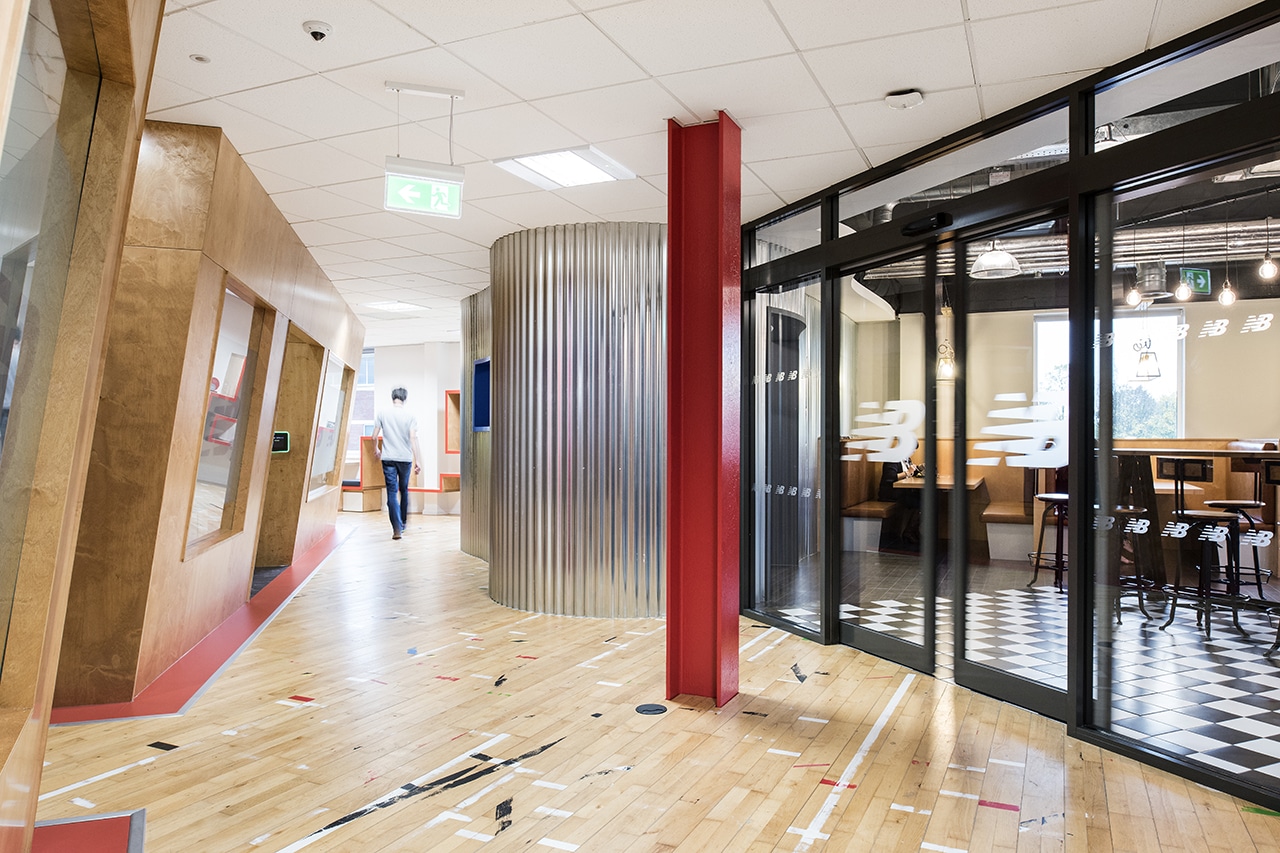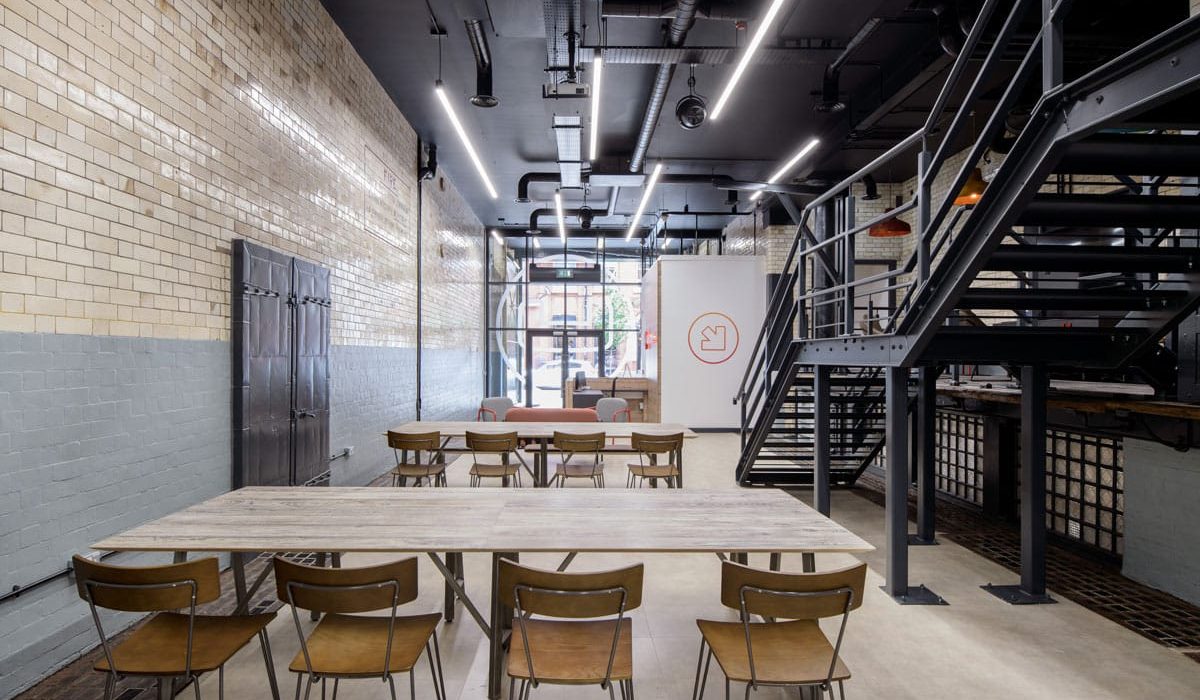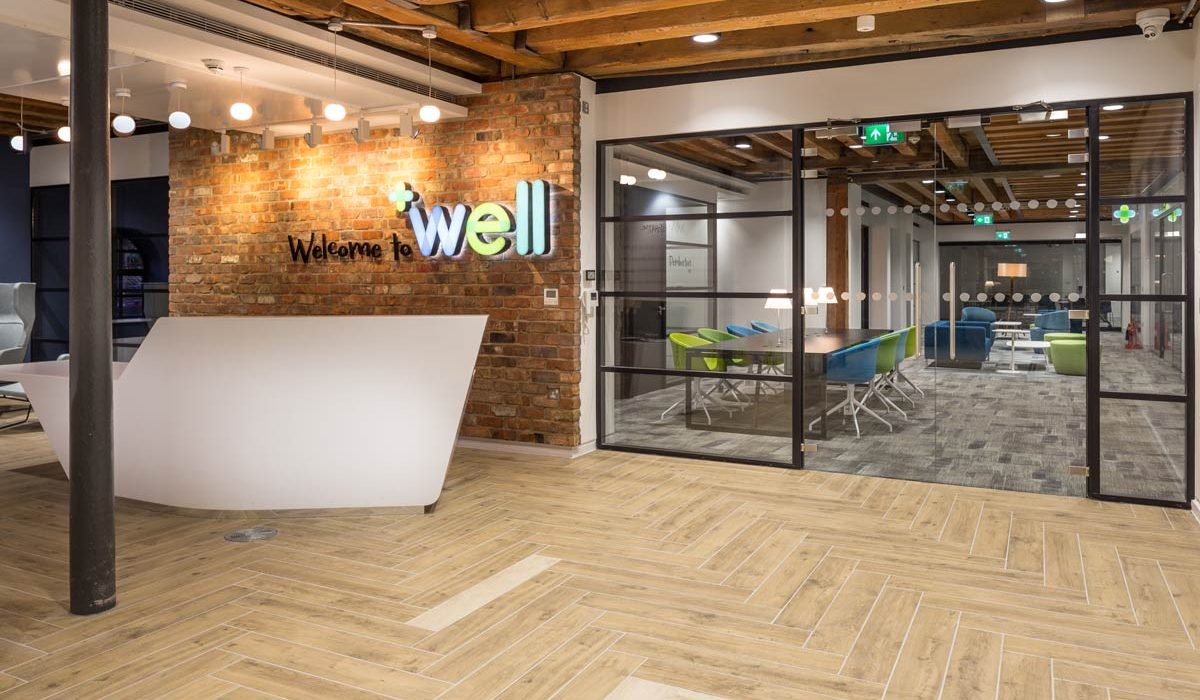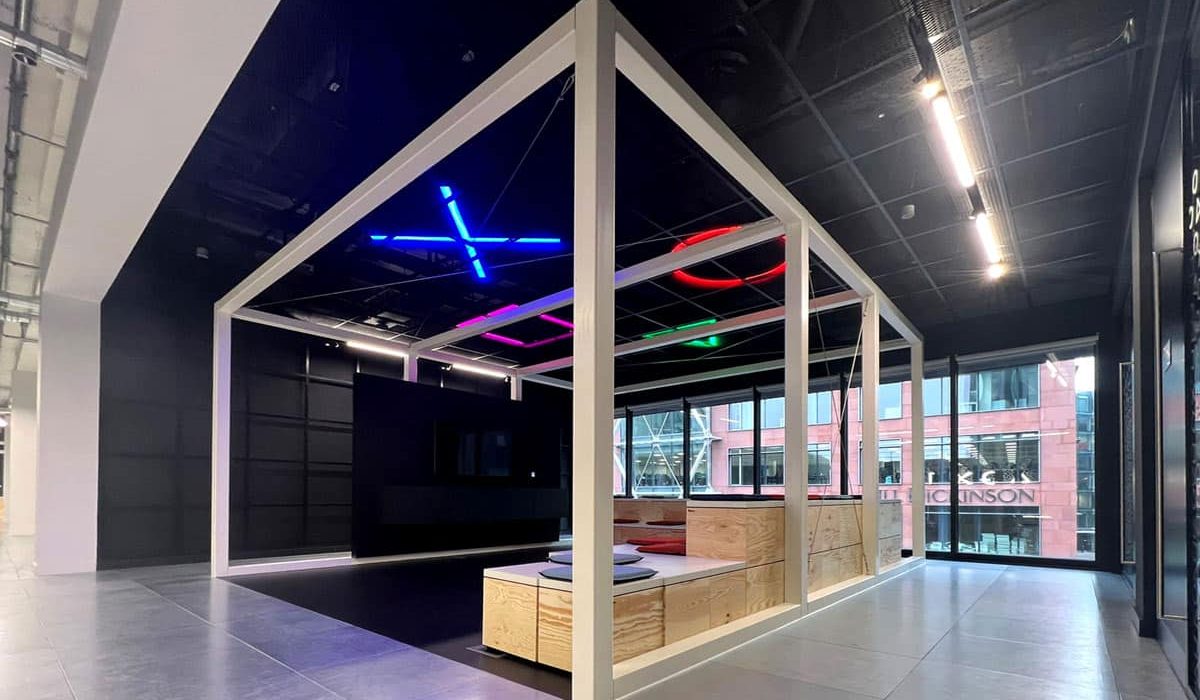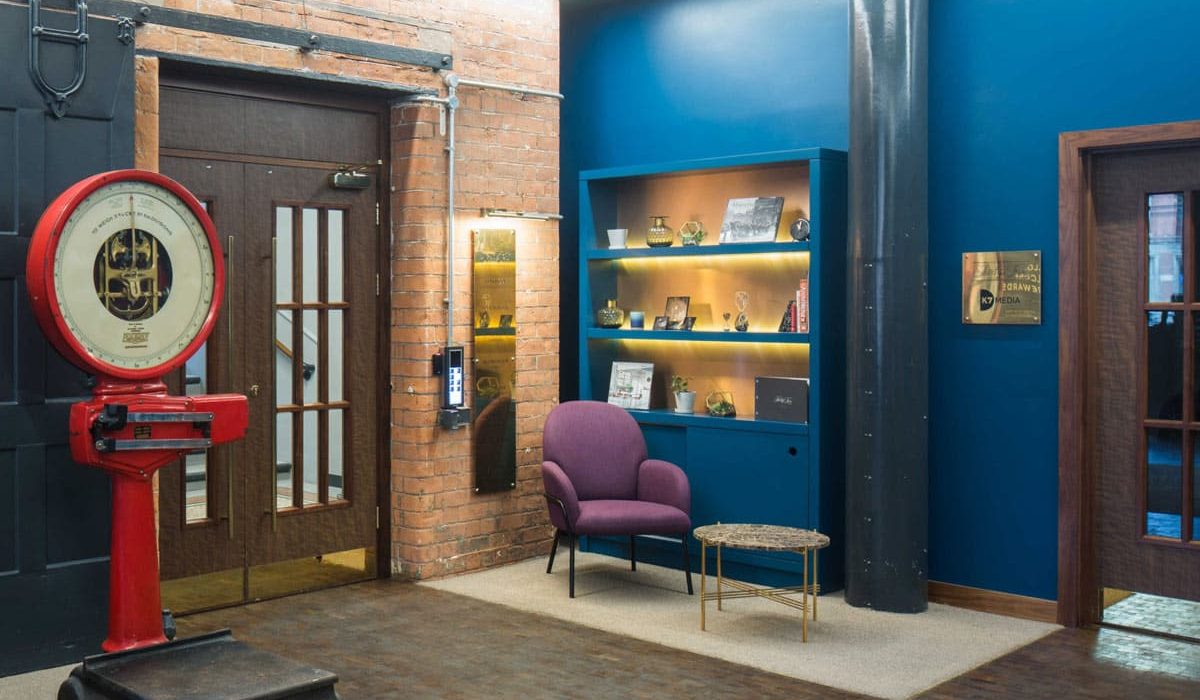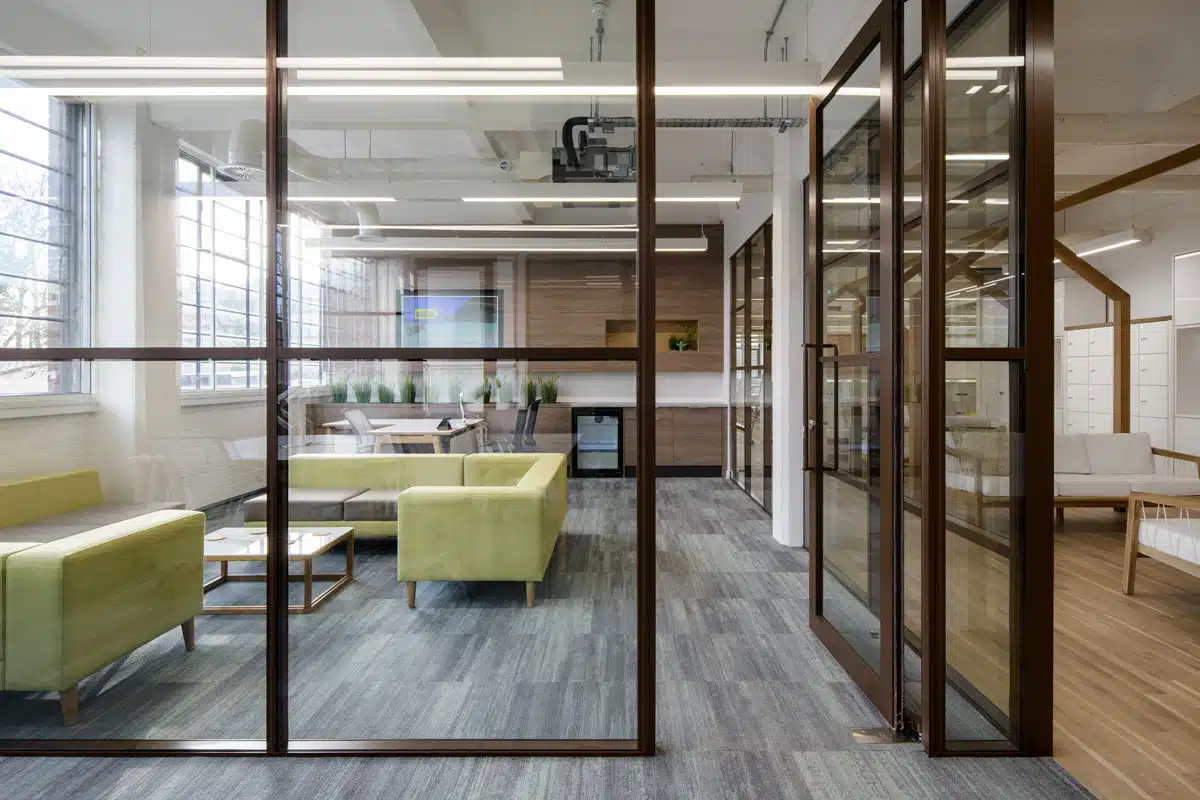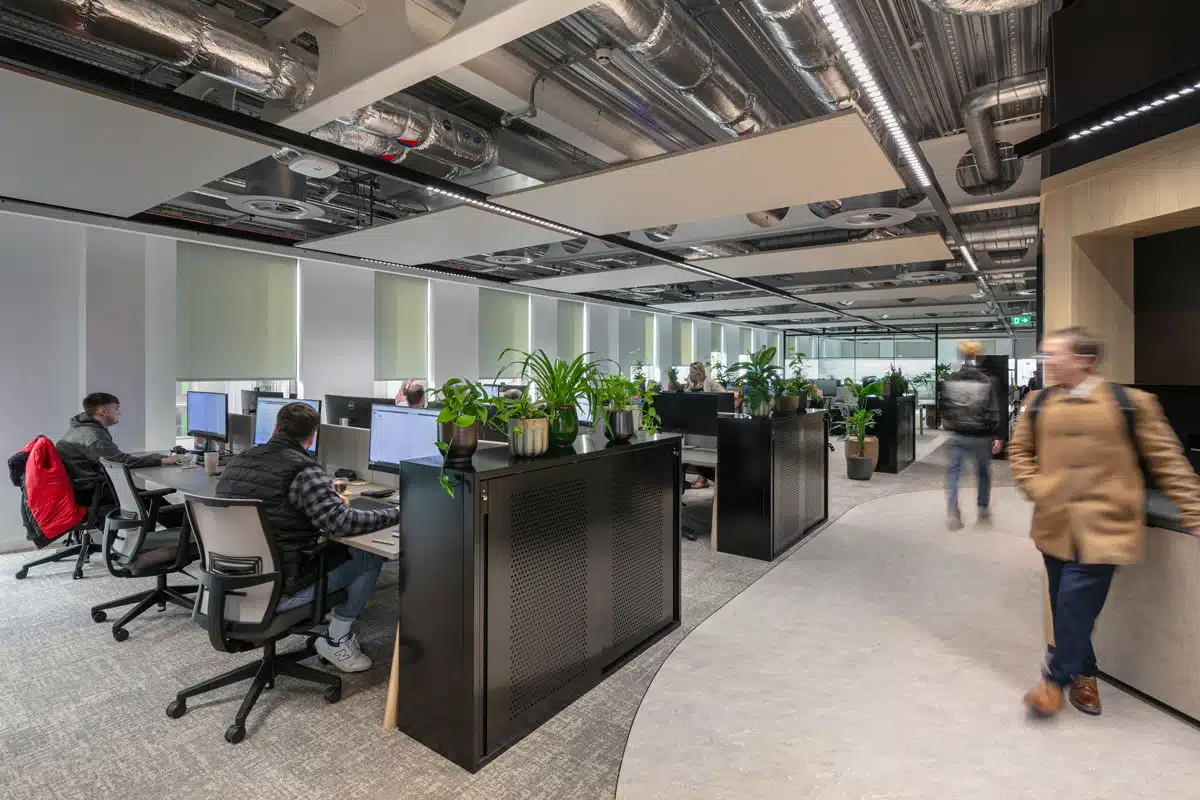Recycled Carpet Tiles
Carpet tiles made from recycled materials are a popular choice for sustainability-conscious offices. These tiles are often produced using post-consumer or post-industrial waste and can be recycled again at the end of their life.
Benefits include:
- Excellent acoustic insulation.
- Modular design allows for spot replacement, reducing overall waste.
- Soft underfoot, which can enhance comfort and support thermal efficiency.
Upcycled & Resilient Flooring Options
Resilient flooring can be sustainable when manufactured using upcycled or recycled content. Modern options often include adhesive-free installation methods and are recyclable at the end of use, reducing waste.
Advantages:
- High durability, ideal for high-traffic areas.
- Slip-resistant finishes improve safety.
- Easy maintenance minimises energy and water use during cleaning.
Natural Materials: Bamboo, Cork & Linoleum
Natural flooring options are biodegradable, renewable, and offer excellent indoor air quality.
- Bamboo is fast-growing and hard-wearing, making it a responsible alternative to hardwood.
- Cork is harvested without harming trees and provides natural sound and heat insulation.
- Linoleum, made from linseed oil, wood flour, cork dust and jute, is long-lasting and anti-bacterial.
These materials support both sustainable sourcing and healthy working environments.
Reclaimed Wood Flooring
Reclaimed wood is a standout eco-friendly option. By repurposing timber from old buildings or infrastructure, you reduce the need for virgin materials and contribute to carbon savings.
Perks:
- Unique, characterful aesthetics.
- Long service life with proper care.
- Ideal for offices wanting a natural, high-end finish.
Acoustic & Energy-Saving Hard Floors
Hard flooring can still offer acoustic performance when combined with specialist underlays or acoustic finishes. This is particularly useful in open-plan areas where noise control is important.
In terms of energy efficiency, many sustainable flooring types offer insulation benefits. This helps regulate indoor temperature and reduce energy consumption, contributing to lower operational costs.
Lifecycle & Longevity Considerations
Choosing flooring with a long service life is a key part of sustainability.
Typical lifespans include:
- Carpet tiles: 10–15 years
- Bamboo: ~25 years
- Cork or linoleum: up to 40 years
- Reclaimed wood: often over 40 years
Long-lasting materials reduce the frequency of replacement and the environmental cost associated with it.
Maintenance with Sustainability in Mind
Sustainable flooring should be matched with eco-conscious maintenance routines:
- Use low-VOC cleaning products and microfibre mops.
- Install entrance matting to limit dirt and water ingress.
- Plan regular spot cleaning and sealing for natural floors where necessary.
Proper maintenance extends lifespan and helps maintain indoor air quality.
Practical Tips for Fit-Outs
When specifying sustainable flooring as part of an office fit-out:
- Identify high-traffic zones and select durable, low-maintenance options.
- Choose materials with certified environmental credentials.
- Consider modular systems to minimise waste.
- Prioritise products that can be recycled or reused at end of life.
- Balance aesthetics with performance to ensure lasting value.
Conclusion
Modern offices can embrace sustainability without compromising function or design. Recycled carpet tiles, upcycled resilient flooring, and natural materials like bamboo, cork, linoleum, and reclaimed wood all provide eco-benefits. When combined with responsible maintenance and lifecycle planning, these choices align with environmental goals and support employee wellbeing.
To explore how ADT Workplace brings sustainable strategies into practice—spanning energy efficiency, responsible sourcing, waste reduction, and more—visit our dedicated Sustainability page.
By selecting eco-friendly materials and planning for their full lifecycle, organisations can create spaces that are as responsible as they are refined.

